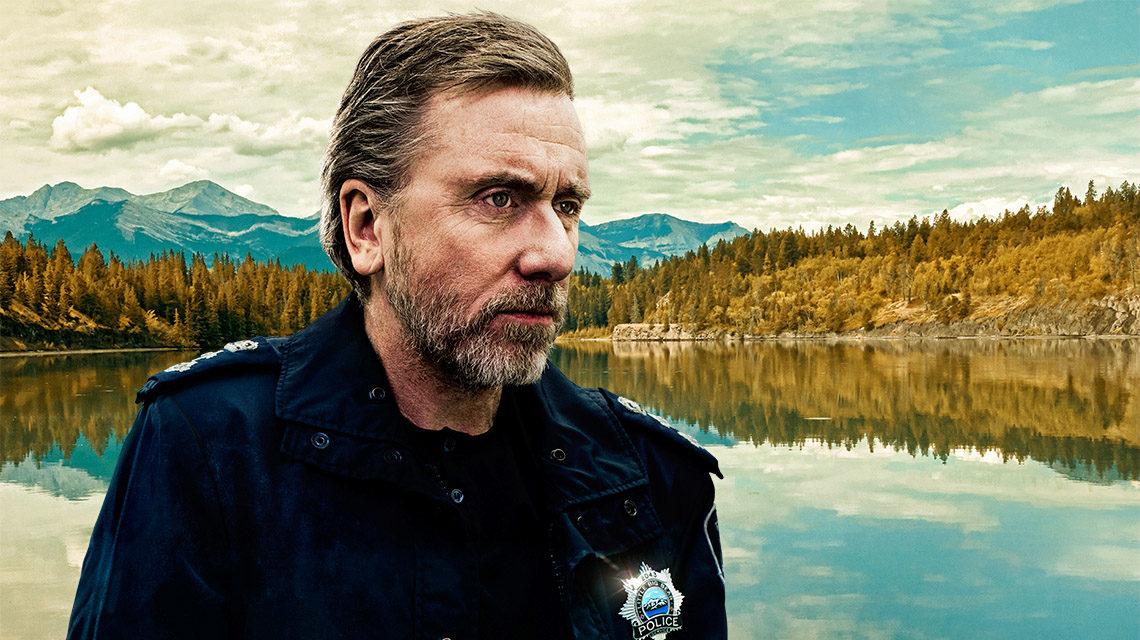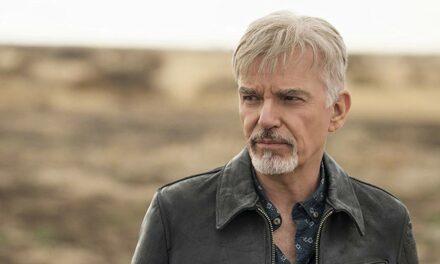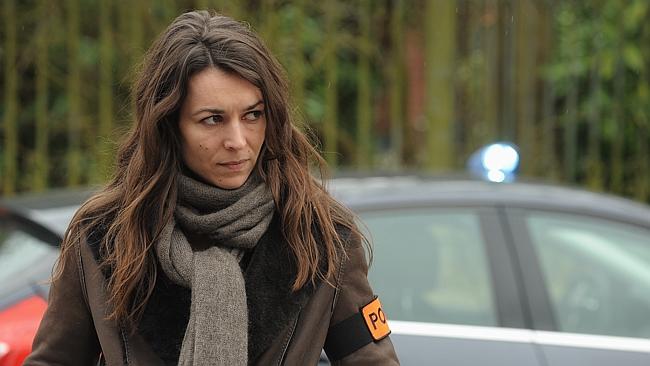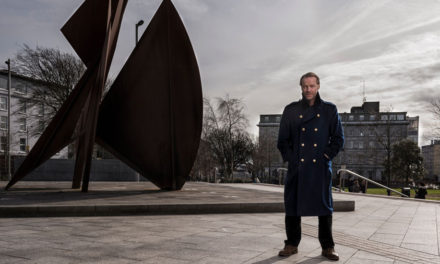The Tin Star TV series, an Amazon Prime exclusive from Britain, doesn’t fit easily into standard categories. It’s a crime drama, black comedy, quirky indy show, and violent revenge tale. The lack of clear identity is a problem at times, but Tin Star overcomes most of its issues and turns into a bingeable story of a family beset by tragedy and a cop haunted by his past.
Tim Roth plays Jim Worth, freshly relocated from England and now chief of police in Little Big Bear, a quaint, scenic tourist trap in the Canadian Rockies. The police have an easy job until North Stream Industries, a mega corporation, builds a new oil refinery in town, bringing an influx of workers and environmental concerns. Their spokeswoman, Elizabeth Bradshaw (Christina Hendricks of Mad Men fame), is new to the job. Both she and Worth are in unknown territory facing steep learning curves.
Worth’s family is with him: wife Angela (Genevieve O’Rielly), teenage daughter Anna (Abigail Lawrie), and young son Petey (Rupert Turnbull). One of them is a shooting victim in the first five minutes of the show, but we don’t find out who until episode two begins.
Facing intense grief, Worth struggles not to turn to the bottle. He’s an alcoholic, part of the reason for the move was to give him a fresh – and sober – start. Turns out that Worth blacks out after heavy drinking sessions. He becomes another person, as it were. As Tin Star progresses, Angela manipulates her husband, calling on his darker side in the hunt for a killer.
Tin Star’s revenge theme is central. Jim and Angela seek to find the man or men who traumatized their family. Viewers already know it’s a small team of Englishmen, who are after revenge of their own. The most obsessive is Whitey (Oliver Coopersmith). He’s young, handsome, and holds lots of secrets.
Mixed into Tin Star are local characters: two more cops (which is the rest of the police force), an ambitious bar owner, First Nations people, and bikers. The North Stream project brings tension and violence to town. It’s fueled by North Stream’s head of security, Louis Gagnon, a lanky, quirky Quebecois, almost a satirical version of a Bond villain.
Flash-forwards start almost every episode of the Tin Star series. We see a scene without context, then jump back one or more days for the events leading up to that moment. It’s an effective tension grabber that can easily become a gimmick. Episode three in Tin Star jumps back and forth constantly, almost to distraction.
Tin Star, perhaps, tries too hard to be independent, outside the norm. There are obvious Tarantino, Twin Peaks, and Fargo influences. The black humor helps to balance the serious and dark aspects of the show, but, in the early episodes, Tin Star struggles to find it’s footing. (This could be a result of six different directors for 10 episodes.) Halfway through, it finds its stride. We find out more about Jim’s past, his other life, and Angela emerges as a powerful force.
Worth is not a particularly likable character, but we want him to win. We feel bad for him early on, but he’s his own worst enemy. He’s a lone crusader for most of the show, shrugging off everyone that tries to help. Roth as Worth is fidgety and animated until he drinks. Then he develops an intense focus and almost supernatural intuitive powers. We can’t watch him without thinking of Roth’s previous movie and TV roles. He’s a natural choice if you want indy cred.
Tin Star was created and written (mostly) by Rowan Joffe, whose credits include 28 Weeks Later and The American. It was produced by Kudos Film and Television for Atlantic Sky. British Sky Broadcasting has the UK rights. In the US, all 10 episodes, 45 or so minutes each, are on Amazon.
Tin Star season 2 has been confirmed, but dates, as of this writing, are unknown.







